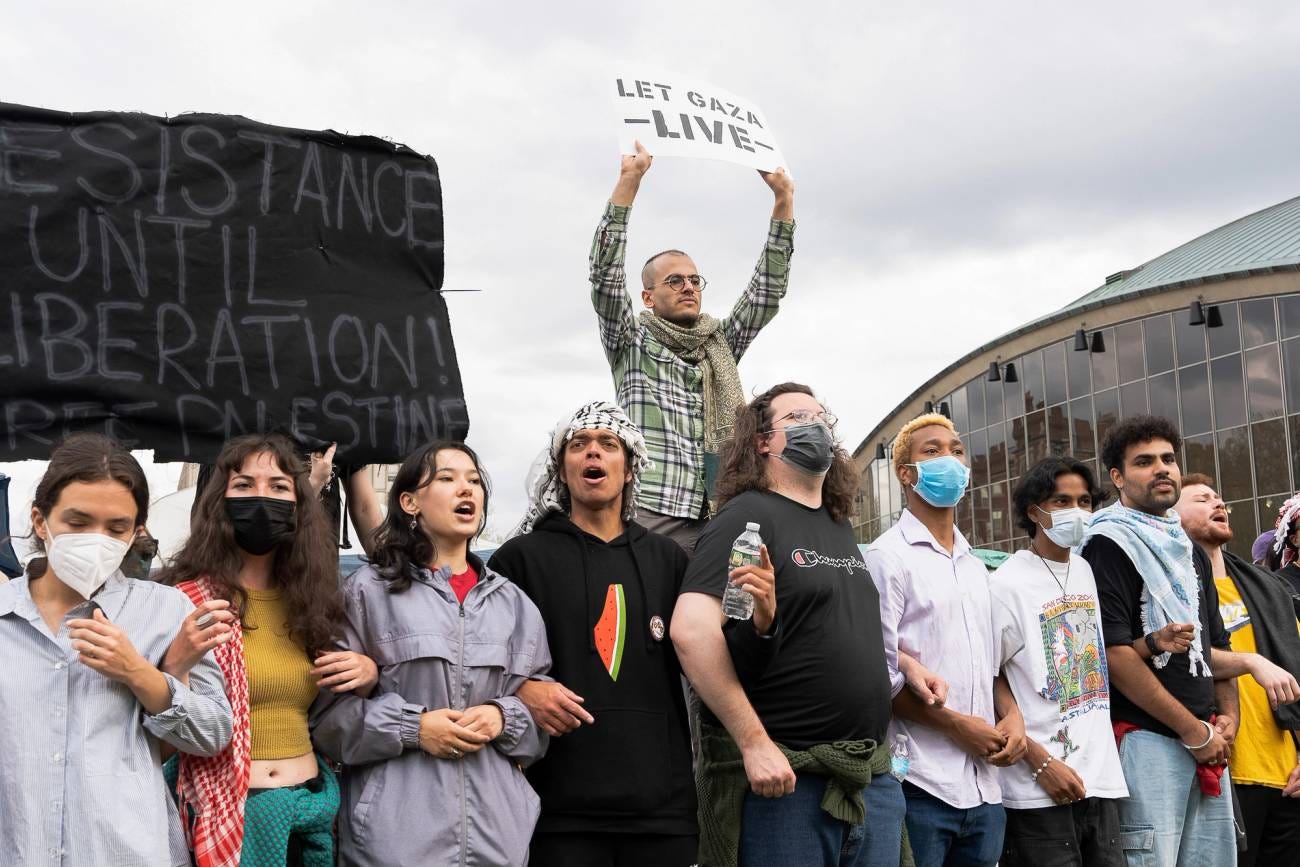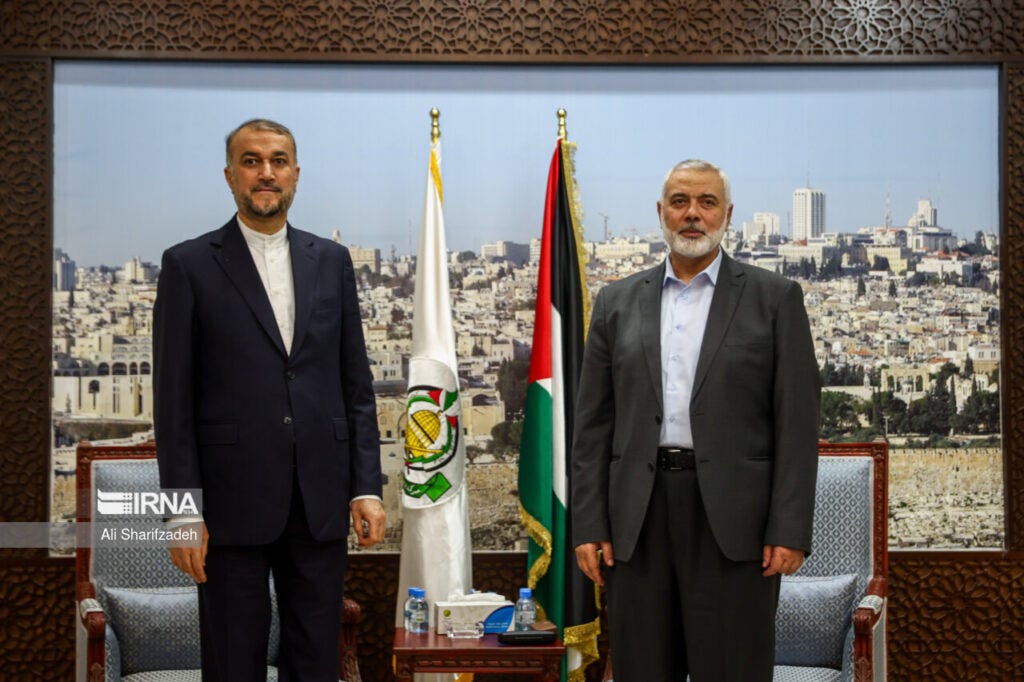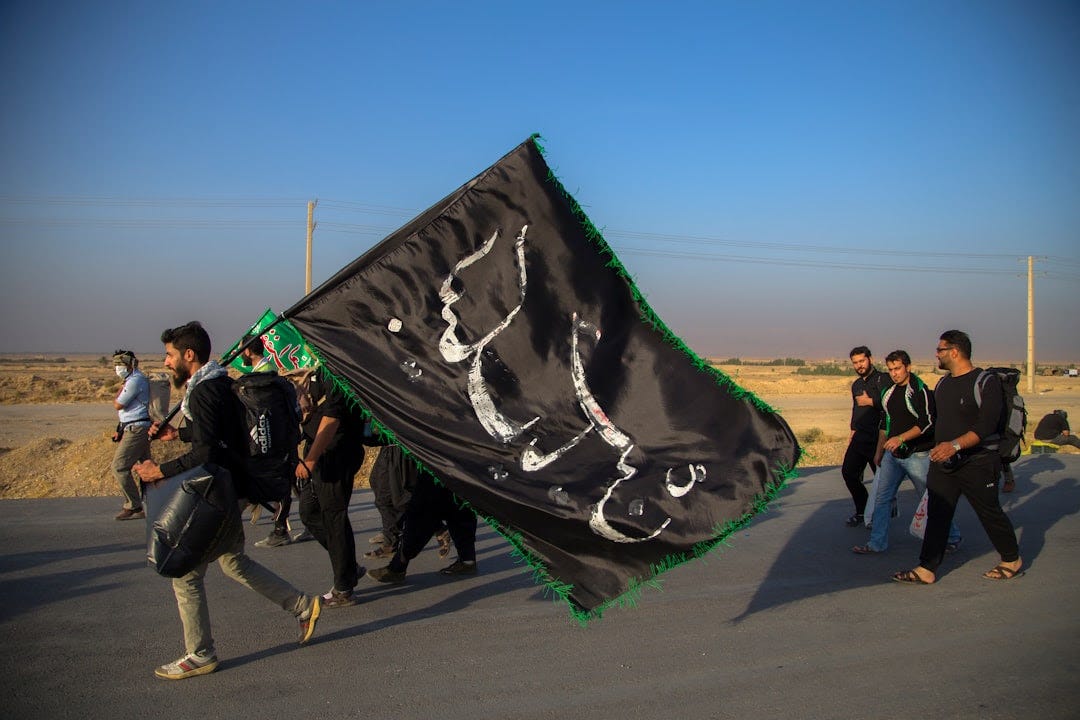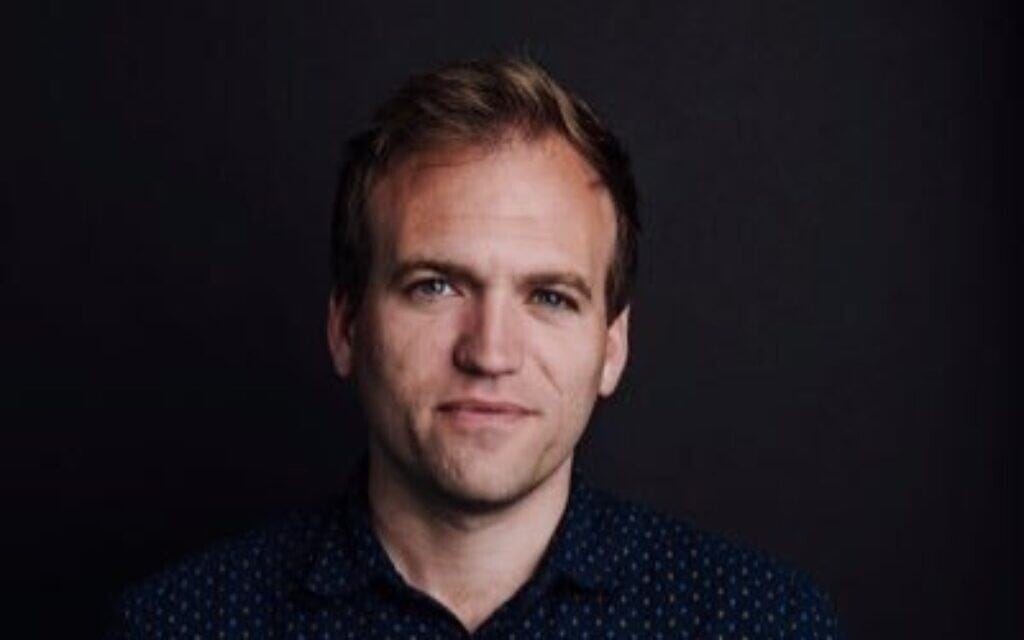Thinking Out of the Box - A Courageous Proposal
July 22, 2025 - Issue #81
Hebron, the largest Palestinian city in the West Bank, is the burial site for Abraham, Isaac and Jacob. It is an emotionally charged place where stands a building under which is a cave sacred to Christians, Jews and Muslims. Jews call it the Cave of Machpelah and the complex including the building there, the Tomb of the Patriarchs. Muslims call it the Al-Ibrahimi Mosque. Hebron is also remembered for the pogrom in 1929, during which Arabs slaughtered sixty-seven Jews. And it is where Jews and Muslims still clash. Today, Hebron is divided into two areas: H1, nominally controlled by the Palestinian Authority, and H2, which is under Israeli control.
In 2016, I visited Hebron with my two brothers-in-law and a friend. To get there, we negotiated an often, single- lane, twisting road which over the years has witnessed blood spilt due to terrorist activity, especially at the Gush Etzion junction. While I saw nothing threatening that day, I certainly felt the need for vigilance. And at no time then, nor until a few days ago, did I see Hebron as a harbinger of hope.
But two weeks ago I read an article in the Wall Street Journal about a letter signed on March 24, 2025, by forty-eight-year-old Sheikh Wadee’ al-Jaabari. He addressed it to Israel’s Economic Minister, Nir Birkat, with the request that it be delivered to Prime Minister Netanyahu. Jaabari’s family has been Hebron’s most influential clan since the days of Saladin and the Crusades. With the death of his well-respected father, Jaabari took the helm.
The contents of the letter shocked me as did the backing it received from local leaders. Four other Hebron Sheikhs signed the letter. Three more Hebron Sheiks have expressed support for the letter’s contents. Combined, Jaabari and these seven other Sheikhs claim the allegiance of 204,000 residents (whether true or not). Another thirteen local Sheikhs are sympathetic to the proposal contained within the missive. They claim the loyalty of another 350,000 Hebron residents. Cumulatively, these Sheikhs allegedly hold sway over two thirds of the Hebron District’s 700,000 residents.
Jaabari’s plan, laid out in the document, is bold. He calls for “cooperation with Israel,” and “co-existence”, and pledges “zero tolerance” for terrorism. Furthermore, he proposes to recognize Israel as a Jewish State. Enticing for sure given the Palestinian Authority’s (PA) long held policy of paying terrorists and their families while also educating Palestinian children to hate Jews. In return, Jaabari asks Israel to recognize a new entity that he proposes to form which would be led by him, and that would heretofore be the sole representative for Arab residents in the Hebron District. Jaabari wants to call the new entity the “Emirate of Hebron.” This emirate would then manage its own municipal affairs and potentially integrate with Israel’s economy, all while remaining under Israel’s security umbrella. As such, the Emirate of Hebron would not be a sovereign state but would be self-governing. Then, if it works, the concept could entice other large Palestinian cities to create their own emirates.
What is an Emirate?
Think first of the United Arab Emirates. The U.A.E. is composed of seven small governing units known as emirates, each led by an Emir (kind of like a governor but who comes to office by virtue of his royal lineage rather than election or appointment). Collectively, these seven Emirs elect one of their own to serve as their leader (traditionally the Emir of the Emirate of Abu Dhabi has always been chosen—who at this time is Sheikh Mohamed bin Zayed Al Nahyan). Each emirate’s Emir is responsible within their own emirate for local administration of laws, services, etc.
Jaabari is proposing a form of the U.A.E. system. This manner of governance is much closer to how Palestinians, who have never had a state of their own, regulated their affairs on a local level for centuries during which:
The Ottomans assumed overall control for two hundred years,
The British controlled the land for nearly thirty years, and
Then the Jordanians ruled almost twenty more years
until Israel became the overarching governing authority since 1967. During these periods, although to a much lesser extent after creation of the PA in the 1990’s following the Oslo Accords, Muslim clan leaders wielded much authority and influence regarding local issues. Before the Ottomans, that was also the case. And even now, despite the presence of the PA, Jaabari and other clan leaders in Hebron, through their Council of Sheikhs, manage many local administrative services in the city. Furthermore, presently there are hints of the same phenomena emerging in Gaza, albeit perhaps not based so much on family structures, now that Israel has weakened the heavy hand of Hamas.
What Specifically Does Jaabari Ask of Israel?
First, and foremost, protection from the PA for himself, the other local Sheikhs that have signed on to his plan, and the Emirate of Hebron as a whole. Plus, two specific economic steps:
A process for restoration of work permits revoked by Israel after October 7, 2023 that would allow increasing numbers of Hebron’s Arab citizens to cross into Israel to work—first 1,000 on a trial basis, then 5,000, and eventually 50,000 (before October 7, 2023, 210,000 Palestinians throughout Judea and Samaria possessed work permits allowing them to work in Israel).
Creation of a joint Israel-Arab economic zone on land adjacent to the border fence with Israel that Jaabari believes would be the impetus for creation of tens of thousands of jobs.
Why Does Jaabari Want to Split with the Palestinian Authority?
Simply put, Jaabari thinks that the PA and the world’s slavish allegiance to the two-state solution concept have brought ruin and suffering to the Palestinian people. The Wall Street Journal quoted him as saying, “The Oslo Accords … only brought damage, death, economic disaster, and destruction” along with, “a corrupt Palestinian Authority.” He further explained that he “plan[s] to cutoff the PA [because] it doesn’t represent the Palestinians.” Instead, he said, the PA is an entity propped up by Israel as part of the Oslo Accords and then imposed on Palestinians. Then, rather than being an authentic liberation movement, according to another Sheikh, once the PA gained power it “[stole] the money of the people.” Another Sheikh expressed that the PA steals everything. “They even steal our water.” And, according to Jaabari, all that the PA knows about Hebron “is collecting taxes.”
Is Israel Seriously Considering the Emirate Idea?
Reportedly, Netanyahu is aware of the proposal, but I have not found any public information indicating whether he supports it. However, both the IDF and Shin Bet, Israel’s internal security agency charged in part with keeping Israel safe from terrorists emanating from Judea and Samaria (West Bank), have expressed significant reservations regarding Jaabari’s emirates plan. Their objections revolve around their perceived need of the PA, despite its distasteful character and feebleness, to help identify and fight terrorists in the region. I find this rational short sighted because depending on the PA’s help is like trying to tread water in quicksand.
What Other Reactions Have There Been to Jaabari’s Plan Since the Wall Street Journal Broke the Story?
Mostly negative!
A few elders in the Jaabari family released a statement that Sheikh Jaabari does not speak for the family and that they support “Islamic and national principles.” Whether they expressed that sentiment out of fear or conviction is difficult to determine. Some say that in comparison to Hebron, clan structure is much weaker in other Palestinian cities. Therefore, the hopes of proponents of the concept that success in Hebron would lead to creation of emirates in other Palestinian cities is unlikely. Another criticism is that creation of an emirate plan could unleash civil war as various family leaders fight for control. All these objections give rise to valid concerns.
And yet, what if …?
My Thoughts
Since Israel threw the Jordanians out of Judea and Samaria in 1967, proposals have been floated that would in practice divide the region into cantons ruled by family structures. Some of those ideas Israel tried to implement in the early years after the Six-Day War. None worked—due both to regional opposition and terrorists assassinating local leaders who had signed on. But that was then. This is now.
Today, we have seen that the Oslo accords, promulgated in the 1990’s, have been a failure. Rather than beget a process leading to two states living in peace, the Oslo accords created a Palestinian Authority composed more of returning PLO terrorists that had been driven into exile rather than local leaders. As a result and not surprisingly, over the ensuing years the PA has been more fearful of losing its ascendency than focused on benefiting its people. As a result, due to the dashed hopes of the citizenry and the reality of its failed rule, the PA fears the outcome of elections so much that there have been none for twenty years.
But the PA does excel at one thing—doing no rather than saying yes—as President Clinton learned at Camp David in 2000, as what befell President Bush’s “Roadmap for Peace” in 2003, as what ensued at the peace conference in Annapolis in 2007, or demonstrated by the outcome of Secretary Kerry’s shuttle diplomacy that began in 2013. None of these efforts succeeded in brokering a two-state solution despite Israel’s increasingly magnanimous offers. Instead, over these three decades of dashed hopes there has been one common denominator—Palestinian Authority rejectionism coupled with PA corruption and incompetence. As a result, largely due to Palestinian frustration with the PA coupled with the rise of Muslim fundamentalism grounded in Jihadi extreme interpretation of the Koran, Hamas’ power grew, and Palestinian terrorism increased. But the violence integral to that approach has backfired on the Palestinians too. Rather than pressuring Israel into accepting a neutering deal that would lead to its destruction, Palestinian terrorism has only served to harden Israeli attitudes and further tie the Palestinian people in Judea and Samaria to the self-serving whims of the PA which has been more focused on doctrine, survival, and personal enrichment than the common good—as well as in Gaza where a monster arose.
So now, could the events subsequent to October 7 form the foundation for something different?
Maybe.
Despite the presence of an estimated 4,000 PA operatives in Hebron, including 200 so-called commandos, the Jaabari clan has wielded much power and authority in Hebron (including managing some civil services through a local Sheikh Council) that has served to reduce PA influence in the city. And because some of those 4,000 PA foot soldiers are members of families that have allegiance to the Sheiks, Jaabari and his allies believe that many PA soldiers will side with their families over the PA headquartered in Ramallah.
In 2007, Jaabari family led forces took thirty-four PA hostages after the PA killed a member of the Jaabari clan and survived the confrontation. And Jaabari is confident that “the people are with us” and that should the PA stand in the way of creation of an emirate, that the Sheikhs would prevail quickly. Given general civilian dissatisfaction with the PA, the PA’s failure to deal effectively with Hamas, and a dash of Israeli support; Jaabari’s optimism might not be unfounded.
Of course, embarking on an emirate course will be met with strident opposition externally—both within Israel and internationally—by those who parrot dreams of the past rather than accept the reality before them. But those still thinking the two-state solution is viable today live in an idyllic world where to succeed:
Palestinians are eager to accept living side by side with a Jewish state despite having been taught to hate Jews for decades; and
Where Israelis would gladly accept allowing heavily armed potential murderers and rapists, led by a government who to this day has not explicitly condemned Hamas for October 7, to base themselves within a stone’s throw of Jewish women and children.
That is not to say that some form of two-state solution cannot be attained by future generations. For it could. But not before it is earned by Palestinians through reform of their educational system and government and Israelis develop trust inspired by Palestinian deeds not words. And not before a Palestinian government that professes such a desire endures for a significant period. For all that to happen, a Palestinian leader must emerge who desires peace, enunciates it—and then survives for many years.
Which leads me back to Jaabari. Granted, he holds little sway outside of Hebron, and the attitudes and composition of the civilian population in other major Palestinian cities—such as in Tulkarm, Nablus, Jenin and Ramallah—would not likely cause them to initially embrace the idea of creating emirates in their towns. However, it strikes me much easier to foment change by starting small than insisting on going big which entails much greater risk of derailment.
Just imagine, before you say “impossible” that some form of the Jaabari plan would work. Not only could it then be a model for other Palestinian cities to experiment with, but it also could be just the impetus required for the PA to get its act together. The threat of extinction, or even just irrelevance, would provide a powerful incentive for the PA to reform. Something that the billions of dollars of international aid and one-sided support that the PA has received over the years has failed to do. Then, there would be a chance for a viable two- state solution—either because the PA has transformed itself into a force for good or because the local emirate model will have proven to be such a positive agent for change that there is value in seeing them combined into one governing entity—as has proven successful with the U.A.E.
So, in Judea and Samaria, as in Gaza, the time has come to think out of the box, to be imaginative rather than doctrinaire, to experiment rather than reject because the stakes are too high and this most recent war may well herald worse to come should peace not reign. Nor should there be more delay for time is not on the side of Jaabari. Already, his car was firebombed in Jerusalem. Meanwhile, some of the Hebron Sheikhs maintain a large component of bodyguards to protect them from the PA and others that might object violently to the Jaabari proposal. Thus, waiting for the perfect solution might well mean giving time for a series of assassinations that would doom Palestinians and Israelis alike to more war, more suffering.
This is why I reject an all or nothing attitude because success at something could lead to accomplishing everything. Therefore, when a leader puts a serious proposal on the table, and stakes his life on its success, it should be explored rather than rejected out of hand because it is from ripples like this that can come a wave.
A Special Request
If you think this article of value, please share it with others. Please also consider indicating if you see value in the article by “liking” it or adding a comment. Doing so helps me determine the subject of future articles that you might find beneficial and, through social media, broadcasts my work to a wider audience.
Iranian Strategy and the October 7 Surprise: A Smoke Screen for a Nuclear Breakout—Written by Sarit Zehavi and Yaakov Lappin for the Alma Research and Education Center—July 14, 2025
Real talk about Islamist radicalization—Written by Nachum Kaplan for Moral Clarity—July 14, 2025
Disarming Hezbollah – Positions, Challenges, and Scenarios—Written by Tal Beeri and Dr. Zoe Levornik for the Alma Research and Education Center—July 9, 2025
Hezbollah’s Arsenal Under International Scrutiny, But This Isn’t Enough—Written by Sarit Zehavi for the Alma Research and Education Center—July 8, 2025
After the Israel–Iran War: Hezbollah’s Decline and Israel’s Opportunity—Written by Orna Mizrahi and Moran Levanoni for the Institute for National Security Studies—July 1, 2025

Israel’s 12-day War with Iran was a Test of Technological Dominance—Written by Stav Levaton for the Times of Israel—July 1, 2025
Israel was Facing Destruction at the Hands of Iran. This is How Close it Came, and How it Saved Itself—Written by David Horowitz for the Times of Israel—June 30, 2025
‘The Stars Aligned’: Why Israel Set Out for a War Against Iran, and What it Achieved—Written by Emanuel Fabian for the Times of Israel—June 27, 2025
IDF Reveals Secret Electromagnetic Unit Prevents Iranian Suicide Drone Attacks on Israel—Written by Yonah Jeremy Bob for the Jerusalem Post—June 23, 2025
Israeli Air Force Raced to Ready Aging Jets for the Most Dangerous Attack in its History—Written by Yoav Zitun for YNET News—July 7, 2025
Top IDF Officials Sure Iran Will Try to Make a Nuclear Comeback, but Say They'll be Ready—Written by Yonah Jeremy Bob for the Jerusalem Post—June 27, 2025
The Dialogue on Syria Should Be About Capabilities, not Intentions—Witten by Sarit Zehavi for the Alma Research and Education Center—July 1, 2025

A Tenured MIT Professor Accused Me of Having a ‘Zionist Mind Infection’—Written by Will Sussman for Tablet—June 27, 2025
Gaza Humanitarian Foundation is Answer to ‘Broken Aid System,’ Says Group’s Head—Written by Lazar Berman for the Times of Israel—July 2, 2025
The Media’s War on the Gaza Humanitarian Foundation—Written by Seth Mandel for Commentary—July 11, 2025
A Quest for Justice October 7 and Beyond: The Dinah Project October 7. Sexual Violence. This is the full PDF Report.
Hamas Systematically, Extensively Weaponized Sexual Violence on October 7, Report Reveals—Written by WALLA for the Jerusalem Post—July 6, 2025
BBC On Gaza-Israel: One Story, Double Standards—Written by Centre for Media Monitoring
Why are America’s Teachers’ Unions at War with Israel?—Written by Jonathan S. Tobin for Jewish News Syndicate—July 10, 2025
Israel’s Struggle with Hezbollah—A War Without End is now available in eBook and hardback format on Amazon and IngramSpark. This compelling narrative explores Hezbollah’s origins and cancerous growth, traces Israel’s response, and reveals Israel’s present readiness to meet Hezbollah’s challenge.
Cliff Sobin
Important Link—Alma Research and Education Center: Understanding the Security Challenges on Israel’s Northern Border












The link to these suggestions:
https://en.m.wikipedia.org/wiki/Palestinian_Emirates_Plan
The main problem with some Israeli politicians, intellectuals and part of the public itself is that there is still a delusion hovering in the air that the Arabs would wake up and come to terms with the existence of the Jewish State.
A history of 1400 years of Jewish persecution by Islam is not evidence enough.
There are plenty of books on the subject starting with the Quran, Hadith and Sira.
Even over a hundred years of terror and war against the Jews living in the Holy Land does not deflect this delusion from many in Israel and America.
The disastrous Oslo Crimes, as it was evident from the start that this whole process, or as it's delusionally termed "the peace process," was one of the finest manipulations of the 20th C by the Soviet Bloc that almost brought Israel to its knees.
The information was readily known to the Israeli security and defence establishments and even to Rabin himself but he totally ignored all the warning signs and went ahead with this colossal disaster.
The clan ideas existed in the past but were waved aside by the geniuses Peres, Beilin and his lot who forced upon the Jewish people in Israel the greatest disaster since WWII, just like the Dictator, Sharon forced on us the expulsion from Gaza in 2005.